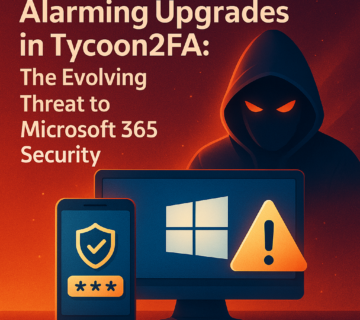Multi-Factor Authentication
Multi-Factor Authentication (MFA) is a vital security measure that requires users to verify their identity using two or more methods before gaining access to an account or system. Typically combining something you know (like a password), something you have (like a smartphone or hardware token), and something you are (like a fingerprint or facial recognition), MFA significantly reduces the risk of unauthorized access—even if login credentials are compromised. Widely adopted across industries, MFA is a key defense against phishing attacks, credential theft, and brute-force intrusions.

Okta SSO Accounts Under Siege: New Vishing Attacks Expose Critical Security Gaps
Okta SSO accounts are under siege from sophisticated vishing attacks that combine voice calls with real-time phishing technology to bypass multi-factor authentication. Cybercriminals impersonate IT staff, guide victims to fraudulent login pages, and intercept credentials during live phone conversations. A single compromised Okta SSO account grants attackers access to dozens of integrated business platforms like Salesforce, Microsoft 365, and Google Workspace. Organizations in financial services and fintech are being actively targeted, with threat actors quickly exfiltrating data and demanding ransoms. Traditional MFA is no longer sufficient—businesses must adopt phishing-resistant authentication methods like FIDO2 security keys, implement robust employee training, and deploy advanced monitoring to defend against these evolving threats. ... Read More

Zero Trust Cloud Security: Protecting Microsoft 365 & Azure Environments from Breaches
Zero Trust cloud security represents a fundamental shift from traditional perimeter-based defenses to continuous verification of every access request. This comprehensive guide explores implementing Zero Trust principles across Microsoft 365 and Azure environments to prevent data breaches, unauthorized access, and insider threats. Organizations adopting Zero Trust architecture reduce breach impact by 50% through identity-based access controls, continuous monitoring, and micro-segmentation. Learn practical implementation steps, Azure security best practices, and Microsoft 365 identity protection strategies that transform your hybrid cloud infrastructure into a resilient security ecosystem. Discover how Cloud Security & Identity Access Management solutions provide the framework for protecting critical business data across distributed workforces. ... Read More

Scattered Spider’s Latest VMware ESXi Attack Campaign: A New Threat to Virtualized Environments
Specifically focusing on the Scattered Spider cybercriminal group's sophisticated attacks against VMware ESXi virtualized environments. They detail the multi-stage attack methodology, which leverages social engineering for initial access, followed by reconnaissance, privilege escalation, and ultimately, hypervisor-level compromise to deploy ransomware and neutralize backup systems. The sources highlight the significant impact on industries like retail, transportation, and insurance due to the speed and efficiency of these attacks. Finally, the documents emphasize crucial defensive strategies, including VMware infrastructure hardening, identity and access management improvements, enhanced monitoring, and robust backup and recovery preparation, while Technijian positions itself as a managed IT service provider offering specialized expertise to combat such advanced threats. ... Read More

Alarming Upgrades in Tycoon2FA: The Evolving Threat to Microsoft 365 Security
Emergence and increasing sophistication of Tycoon2FA, a Phishing-as-a-Service platform specifically designed to bypass multi-factor authentication, particularly for Microsoft 365 and Gmail accounts. It highlights new evasion techniques employed by Tycoon2FA, such as invisible Unicode characters, custom CAPTCHAs, and anti-debugging scripts, making it a significant threat. The text also discusses a surge in phishing attacks leveraging malicious SVG files to deliver credential-stealing JavaScript. Finally, it offers recommendations for defense, including blocking SVG attachments, using phishing-resistant MFA, and enhancing employee awareness, while also briefly introducing Technijian as a provider of relevant security services. ... Read More